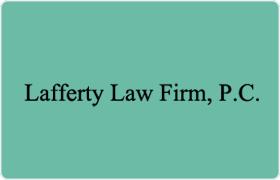Nashville Credit & Debt Lawyer, Tennessee
Sponsored Law Firm
-
 x
x

Click For More Info:
-
Lafferty Law Firm, P.C.
1321 Murfreesboro Pike Suite 521 Nashville, TN 37217» view mapBankruptcy & Debt Over 30 Years Of Experience
Susan S. Lafferty is a CPA and Attorney who enjoys helping people with financial problems. She is located in Nashville, TN where she has lived for over 30 years.
800-936-9071
Gulam Rauf Kuli-zade
Bankruptcy, Credit & Debt, Corporate, Litigation
Status: In Good Standing Licensed: 14 Years
Barton Andrew Hove
Litigation, Insurance, Construction, Credit & Debt
Status: In Good Standing Licensed: 4 Years
Charles Shelton Sanger
Real Estate, Administrative Law, Business, Credit & Debt
Status: In Good Standing Licensed: 40 Years
Tom Bryant Norris
Corporate, Credit & Debt, Labor Law, Elder Law
Status: In Good Standing Licensed: 29 Years
Robin Jeffrey Gordon
Litigation, Entertainment, Trusts, Credit & Debt, Business & Trade
Status: In Good Standing
Thomas Bryant Norris
Corporate, Credit & Debt, Labor Law, Elder Law
Status: In Good Standing Licensed: 29 Years
Campbell Carter Steele
Construction, Wills & Probate, Business, Credit & Debt
Status: In Good Standing Licensed: 20 Years
Tom Lawless
Dispute Resolution, Banking & Finance, Credit & Debt, Bankruptcy
Status: In Good Standing
Thomas William Lawless
Ethics, Dispute Resolution, Legislative Practice, Credit & Debt
Status: In Good Standing Licensed: 44 Years
Randal Steven Mashburn
Dispute Resolution, Reorganization, Litigation, Credit & Debt
Status: In Good Standing Licensed: 43 Years
 Susan Lafferty Nashville, TN
Susan Lafferty Nashville, TN Practice AreasExpertise
Practice AreasExpertise
